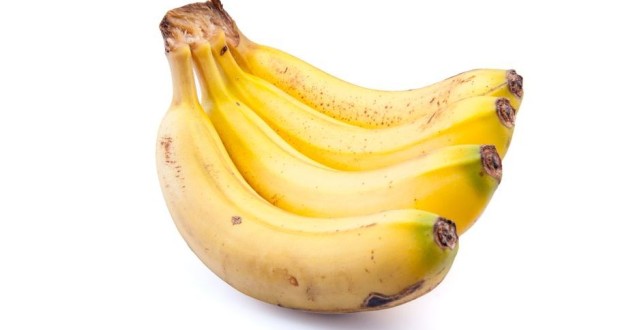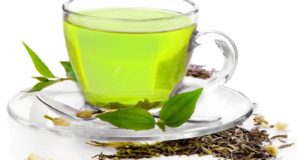Certain vital nutrients are easily associated with their effect on the human body. For example, you probably learned back in elementary school that vitamin D and calcium are essential for strong bones. If your paid regular attention in health class, you might also recall that vitamin C helps bolster our body’s immune system. And potassium, of course, well… that helps with, um…
Like most people who aren’t practicing doctors, you probably are stumped as to why potassium is so highly regarded. While it doesn’t get as much publicity as say, vitamin D, the body needs a steady supply of potassium to maintain optimal health. A wide range of organs and tissues rely on this nutrient to perform their daily functions; without it, their performance and overall condition begins to suffer. Since it’s probably been a while since you’ve read anything about the benefits of potassium, consider the following information a brief yet informative recap.
A Manager Of Fluids – The body is nearly seventy percent water, meaning that there are an awful lot of fluids marauding through your veins, organs and tissues. There is no denying that the human body needs a good amount of liquids to function properly. Excessive fluids in the body, however, is quite literally a case of having too much of a good thing. When the body runs low on potassium, water begins to accumulate within the body, leading to swelling and unwanted gains in weight. A healthy level of this nutrient enables the body can successfully remove extraneous fluids.
Helping the Muscles Move Smoothly – In order to move your arms, legs and virtually all of its other moveable parts, your body needs to regularly contract and relax its muscles. As with any other routine mechanism within the body, this process can sometimes go haywire, leading to painful muscle cramps and spasms. Potassium allows the contraction and relaxation cycle to function normally, preventing the development of such problems.
Aiding Your Digestive System – To successfully break down food and utilize its nutrients, the body relies upon certain molecules known as digestive enzymes. Your body needs the help of certain nutrients, including potassium, in order to produce enough enzymes to properly digest food.
A Possible Defense Against Hypertension– Millions of Americans struggle daily with high blood pressure (hypertension), an ailment that can lead to potentially deadly medical problems, such as heart attack and stroke. Recent research suggests that a healthy potassium intake can greatly help with keeping your blood pressure in check. In one study, participants saw a noticeable decrease in blood pressure levels after regularly taking potassium supplements. A report released in April 2013 concluded that, through a combination of reduced salt consumption and a potassium-rich diet, 2.5 million lives worldwide could be saved each year.
Building Stronger Bones – While there is no denying the importance of vitamin D and calcium in maintaining durable bones, potassium can also strengthen your skeletal system, albeit in a somewhat indirect manner. Potassium enables your body to store adequate amounts of calcium in its bones; when the body begins to run low on potassium, calcium is often discharged through the patient’s urine.
Best Sources of Potassium
In addition to being very beneficial to your overall health, potassium isn’t too hard to find at the supermarket. The following foods all offer a quick boost of potassium, along with several other key nutrients.
Sweet Potatoes – Sweet potatoes are distinguished from their more well-known cousins by their elongated appearance and relatively sweet taste (hence the name “sweet potato”). What also sets this root vegetable apart from the common white potato is its potassium content, to the tune of nearly 700 milligrams in a single potato. As an added bonus, you don’t have to worry about this potassium source derailing your diet, since a sweet potato only contains about 130 calories.
Orange Juice – The nutritional value of orange juice, including its ample amount of vitamin C, has helped solidify its position at the breakfast table. This popular morning beverage is also offers a fair amount of potassium (14% of the recommended daily value, or DV for short).
White Beans – The types of beans available to consumers are almost too numerous to count. While it’s hard to go wrong when picking up a can of beans while shopping, white beans are arguably your best bet when it comes to upping your potassium intake. One cup of this white-colored variant of Phaseolus vulgaris (the Latin name for beans – you learn something everyday!) features 34% DV of potassium.
Yogurt – Yogurt is yet another food that receives a lot of good press, largely thanks to its low calorie count and sizable supply of nutrients like calcium. Aside from these traits, this dairy treat also boasts a significant amount of potassium (16% DV). There is one major caveat regarding yogurt, however; many low-fat yogurts are packed with exceptionally large amounts of sugar. Try finding a brand that minimizes sugars and other sweeteners.
Bananas – Aside from apples and organs, bananas might be the most recognizable fruit at the supermarket. When the topic of potassium-heavy diets is brought up, bananas are also one of the first foods likely to be mentioned. With each banana holding 23% DV of this nutrient, it’s easy to see why.
 Natural Knowledge 24/7 Educate yourself with nutrition, health and fitness knowledge.
Natural Knowledge 24/7 Educate yourself with nutrition, health and fitness knowledge.






